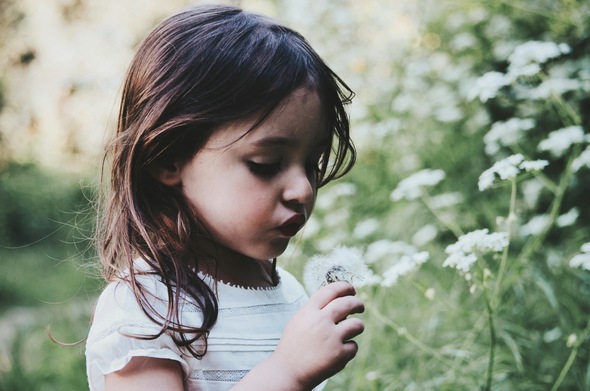How to Nurture Faith in Your Children
Nurturing faith in children is a profound way to instill a sense of wonder, morality, and purpose in their lives. It’s not exclusively about religious faith but rather encompasses a broad spectrum of beliefs and values that guide us through life. This article aims to explore various strategies and approaches to foster a resilient, compassionate, and open-minded worldview in our youngsters.
Whether you adhere to a specific religion, spirituality, or humanistic values, instilling faith in children can empower them with the tools they need to face life’s challenges with grace and positivism.
Lead by Example
Children are incredibly observant and often mimic the beliefs, attitudes, and behaviors of their caretakers. Demonstrating your own commitment to a set of values or faith can inspire them and provide a tangible model for how those beliefs are lived out daily. It’s important to remember that you don’t have to be perfect; showing how you navigate through your mistakes within the framework of your faith is equally powerful and relatable for children as they learn about faith in action.

Setting an example through your actions and decisions can instill a deep sense of trust and admiration in children, shaping their understanding of faith through real-life experiences. By showcasing the principles you hold dear in various aspects of your life, you create a lasting impact that resonates far beyond words.
Encourage Questions and Exploration
Fostering an environment where questions are not only welcomed but encouraged can significantly impact a child’s faith development. This approach helps them understand that faith is a journey of continuous learning and growth, emphasizing the process of seeking understanding over simply having all the answers. For instance, encouraging children to engage in Christian topics for discussion can deepen their understanding and connection to their faith, creating a space where they feel comfortable expressing their doubts and curiosities. By nurturing curiosity and exploration, children can develop a resilient faith that evolves with them.
Encouraging children to ask questions fosters critical thinking and a deeper engagement with their faith, allowing them to develop a more profound connection to their beliefs through exploration and discovery. Embracing their inquiries with patience and openness nurtures a sense of independence and intellectual curiosity that strengthens their faith foundation.
Introduce them to a Community
Involving children in a community that shares your values or faith can provide them with a sense of belonging and support. Communities offer a diverse range of perspectives within the same faith structure, exposing children to the various ways beliefs can be expressed in people’s lives. This exposure can broaden their understanding and appreciation of faith diversity. Immersing children in a supportive community not only reinforces the values and teachings they receive at home but also exposes them to different interpretations and practices within their faith.
Being part of a community fosters social connections and a sense of unity, reinforcing the importance of shared beliefs and values in a broader context. Enrolling children into a school that incorporates religious studies into the curriculum is a great example of how to achieve this — TCEO schools based in Catholic faith offer a supportive environment for children to develop their beliefs alongside their learning.
Provide Resources
Offering a variety of resources such as books, stories, and media that align with your values can engage children in exploring those principles in practical ways. Whether it’s through age-appropriate literature, films, or interactive online content, these resources can spark meaningful conversations and reflections on profound topics in a format that resonates with children’s interests and curiosity.
Providing diverse resources tailored to children’s preferences and learning styles enriches their understanding of faith concepts and encourages them to explore different aspects of their beliefs through interactive and engaging mediums. By offering a range of materials that cater to their individual interests, you can ignite a passion for learning and self-discovery in children as they navigate their faith journey.
Create Rituals and Traditions
Establishing rituals and traditions can help ground a child’s life in the rhythm of their faith. These practices, whether observed daily, weekly, or annually, serve as consistent reminders of their beliefs and values. Additionally, rituals provide comfort and a sense of predictability that can be particularly reassuring for young minds, fostering a deeper connection to their faith. Introducing meaningful rituals and traditions into a child’s routine creates a sense of stability and continuity, embedding the principles of their faith into their everyday experiences. Through these rituals, children learn to appreciate the significance of their beliefs and develop a sense of identity rooted in their faith traditions.
Show Tolerance and Open-mindedness
Instilling values of tolerance and open-mindedness toward diverse beliefs and opinions is crucial in shaping a child’s perspective on faith. By teaching children that faith can manifest in various ways and that diversity in belief is enriching, you promote empathy, compassion, and understanding. This inclusive approach encourages children to embrace differences and cultivate a global mindset in today’s interconnected world.
Cultivating an environment of respect and acceptance for diverse perspectives empowers children to navigate the complexities of faith with an open heart and mind, fostering a spirit of inclusivity and mutual understanding. By nurturing a culture of tolerance and open-mindedness, you equip children with the tools to engage with diverse beliefs and practices, fostering a sense of unity and interconnectedness in a world rich with different faith traditions.

Nurturing faith in children is a multifaceted endeavor that encompasses leading by example, encouraging exploration, engaging with communities, providing diverse resources, establishing meaningful rituals, and promoting tolerance. By adopting these strategies, parents and guardians can lay a strong foundation for their children’s spiritual and moral growth while exploring academic excellence.
The key is to approach this process with openness, patience, and adaptability, recognizing that each child’s faith journey is unique. In doing so, we not only guide them in developing a profound sense of faith and purpose but also equip them to face life’s challenges with resilience and grace.
Ultimately, fostering faith in children is about nurturing their overall well-being and helping them cultivate a compassionate, understanding, and open-minded view of the world around them.




